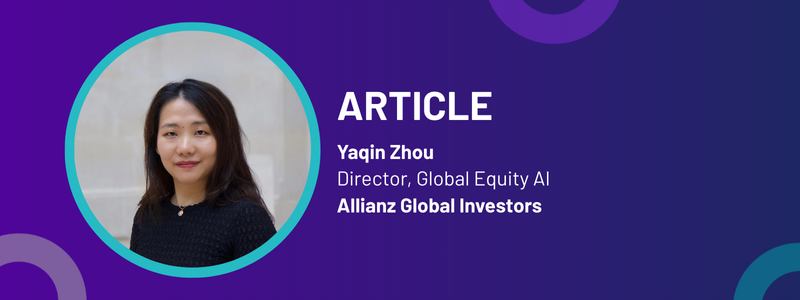AI & Machine Learning in Quantitative Finance: The New Alpha Arms Race

AI & Machine Learning in Quantitative Finance: The New Alpha Arms Race
The pursuit of alpha has always been a battle of models and data. Today, this field has entered a new era being reshaped by AI, defined not by incremental advances but by a fundamental paradigm shift toward intelligent, autonomous systems. The convergence of deep learning, large language models (LLMs), and reinforcement learning is fuelling a strategic arms race where sustainable competitive advantage is increasingly determined by the capacity to orchestrate adaptive, multi-agent AI systems. This transition represents a revolution, moving beyond mere prediction to the development of systems capable of perception, reasoning, and strategic action.
For decades, quantitative finance relied on comparatively static models. Today, that paradigm is being overturned by adaptive architectures. Deep neural networks (DNNs) serve as powerful non-linear function approximators, uncovering complex, high-dimensional patterns in market data that were previously intractable. In parallel, LLMs—such as domain-specific LLMs BloombergGPT—act as semantic engines, decoding latent signals from unstructured textual data: earnings call transcripts, central bank communications, and financial news. Pioneering institutional actors, including China’s Lingjun Investment and Japan’s Simplex Asset Management, have publicly committed to this new paradigm, deploying end-to-end machine learning-driven strategies that have demonstrated robust, consistent performance.
Arguably the most transformative component of this toolkit is Reinforcement Learning (RL). While supervised learning models generate predictions, RL agents learn optimal policies through interaction with a simulated environment. Via millions of exploratory trials, an RL agent discovers action sequences—whether to execute a trade, adjust a portfolio, or manage risk—that maximize a defined financial reward function, such as risk-adjusted return (e.g., Sharpe ratio). Its applications are profound: in dynamic portfolio optimization, RL agents can learn policies that adapt seamlessly to non-stationary market regimes, outperforming traditional mean-variance frameworks. In optimal trade execution, RL can master the complex task of slicing large orders to minimize transaction costs and market impact, a perennial challenge in algorithmic trading. RL is, therefore, the core engine that transforms passive prediction into active, intelligent decision-making.
The ultimate synthesis of these technologies lies in the architectural design of an autonomous quantitative team. This integrated system operates through a continuous loop of three specialized functions:
- Perception (The 'Scout'): An agent, often leveraging LLMs and alternative data pipelines, sifts through immense volumes of real-time and unstructured data to identify relevant signals and events.
- Reasoning (The 'Strategist'): A planning agent, frequently powered by DNNs or RL, analyzes the curated information to formulate alpha hypotheses, assess risk, and generate a precise investment plan.
- Action (The 'Execution'): An RL agent takes the formulated strategy and executes it intelligently in the market, dynamically optimizing for execution price, liquidity, and minimal market impact.
This end-to-end automation represents the frontier: moving beyond isolated models to architecting cohesive, intelligent investment systems.
However, increasing autonomy necessitates a rigorous framework for trust and governance. Opaque "black-box" strategies are untenable for both regulators and risk-conscious investors. Consequently, Explainable AI (XAI) is not a luxury but a critical operational necessity. Techniques such as SHAP (SHapley Additive exPlanations) values for feature importance and attention mechanism analysis for LLMs provide the transparency required to validate, debug, and ethically oversee these complex systems.
In this new landscape, the role of the quantitative professional evolves from model builder to that of a system architect, trainer, and ethicist. The primary imperative is to ensure the alignment of powerful autonomous agents with strict fiduciary duties and risk mandates. The alpha arms race is no longer contingent on computational speed or data volume alone. It is a race defined by the ability to best design, orchestrate, and govern intelligent systems that continuously learn and adapt to the infinite complexity of global markets. Those who master this new discipline will undoubtedly shape the future of finance.

